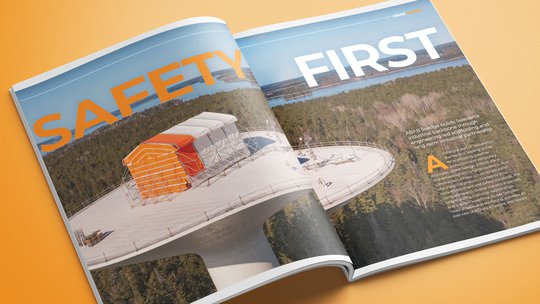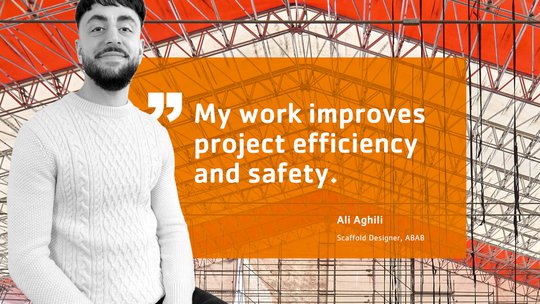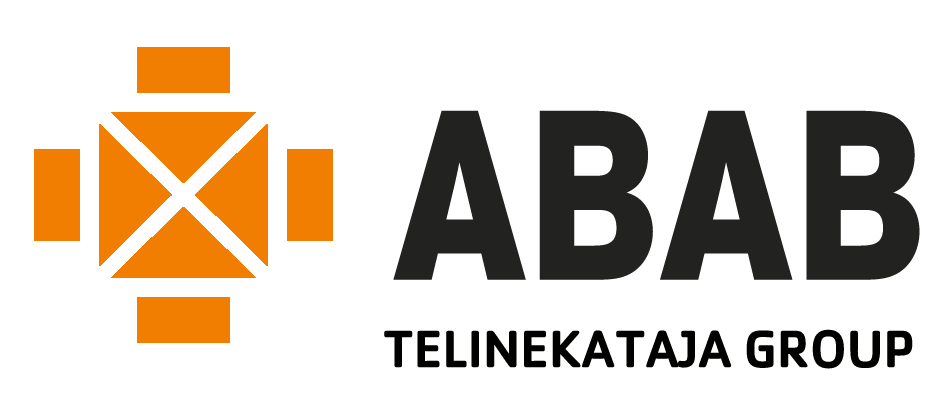


At Outokumpu’s Tornio operations in early autumn 2021, COVID-19 safety during major annual maintenance shutdowns was ensured by, for instance, a bubble model. The employees of their own and subcontractors divided into smaller groups remained in their own bubbles even during breaks. “In addition to safety, field canteens located close to the work site brought efficiency and productivity during the outage,” says Heidi Junno, contractor safety engineer at Outokumpu's Tornio factories and the Kemi mine.
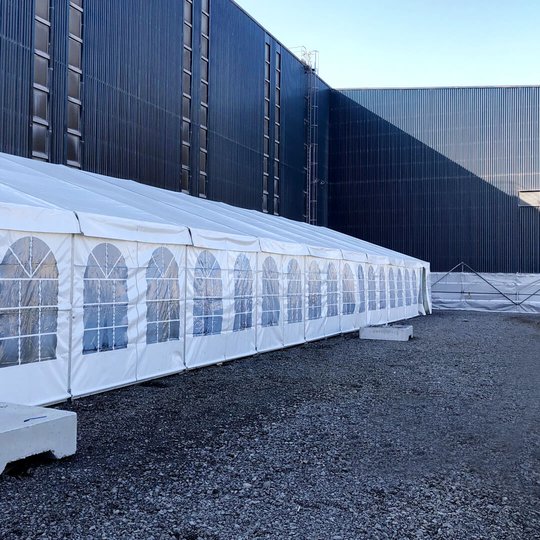
Outokumpu's Tornio plant is the largest stainless steel production facility in Europe, covering all stages of production. On the over 600-hectare plant site, approximately 2,000 employees work. The annual maintenance in early autumn 2021 will increase the workforce by 550 people.
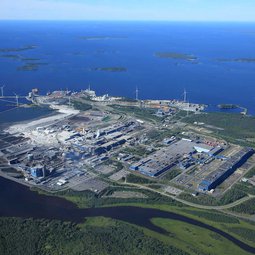
Tornio, on the coast of the Gulf of Bothnia, has the largest stainless steel production facility in Europe, covering all stages of stainless steel processing. A short distance away in Keminmaa, there is a Kemi mine from where more than 30 truckloads of mined chrome are transported as concentrate to the steelworks, every day.
All steel production departments, the ferrochrome plant and the port of Röyttä are located in the same factory area. Outokumpu’s own staff normally works in an area of more than 600 hectares, employing approximately 2,000 people.
“The steel smelting which occurs every autumn, the hot rolling mill and cold rolling mill 2 increased the population of the factory area by 550 people this year,” says Development Engineer Rami Salo.
Even during the coronavirus epidemic, the steel industry is running, non-stop. In order for production to stop only as planned and for a short time, the Outokumpu Tornio mills have made extensive practical arrangements. Risk assessment of premises, enhanced hand hygiene and cleaning... instructions on distances, masks, vaccinations and quarantines. The number of people and encounters is also strictly limited. “For example, our own canteen was completely closed at the beginning of the pandemic. Then takeaway food was offered, now the number of diners is limited to half the normal number,” says Heidi Junno, who, like Rami Salo and other employees, still works remotely.
At Outokumpu’s Tornio mills, the bubble model also controlled the annual maintenance during 2021. At the turn of August–September, during a two-and-a-half-week period, maintenance work was carried out during seven days a week, from 6 am to 6 pm every day. Some of the work was done 24 hours a day. Those participating in the annual maintenance were divided into small bubbles, which were kept separate.
“Of course, entry documents were needed for foreign labour participants, in accordance with Finnish restrictions. Corona testing was mandatory – even for those who were vaccinated. A negative test result was required for service providers, every week. Approximately 1,200 people were involved in the testing, including our own staff,” Heidi Junno says.
The Tornio factories and the Kemi mine have had maintenance contracts with Telinekataja since 2018. The cooperation that started through competitive tendering is now in the second contract period. Telinekataja has a consistent workforce occupation at the Tornio factories and the Kemi mine: 10 to 50 people every day. During the outage, the strength of Telinekataja was about 50 employees,” says Rami Salo.
In June 2021, the meeting of the contracting partners included discussions on the temporary structures created by the needs of annual maintenance and coronavirus safety, such as field canteens, which Telinekataja, together with Kataja Event, had already implemented for its industrial customers.
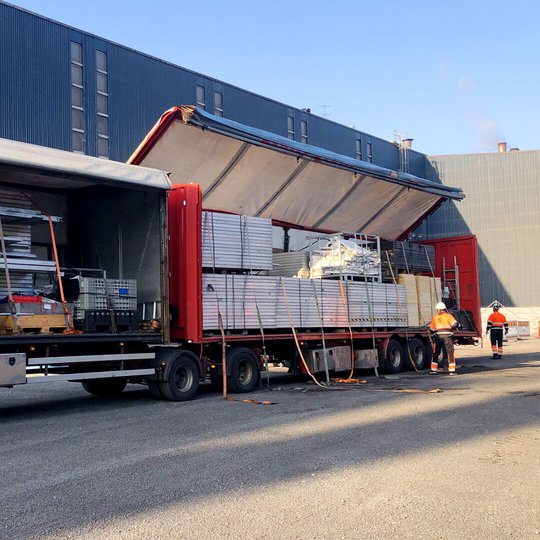
A large factory area has its advantages. The field canteen fit well next to the service job site and the “building materials” could be dropped directly onto the site from the truck. A field canteen erected near the workers also saved time and steps during the 2.5-week outage. Per the bubble model, the canteens of Outokumpu’s Tornio factory were mainly reserved for their own staff only.
“When we started this experiment, it was very important that the scaffolding caterers already have a good knowledge of our factory area, production and outages. The contracting party already knows all work permit practices as well, so the plans for implementations were made quickly. The familiar Telinekataja staff were responsible for the installation and dismantling of the temporary structures,” says Rami Salo.
Based on the bubble model, two field canteens with storage units and covered hand washing points were designed and implemented. Both loosely dimensioned canteens had facilities for the service line, till and refrigerators. The dining areas were divided into screened off in subsections. At each table, each diner was further secured and sectioned off by plexiglass.
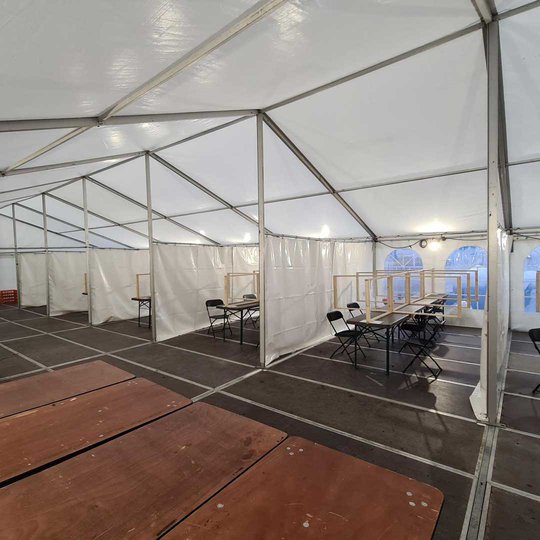
One of the longest buildings in Finland, the nearly one-kilometre cold rolling shop 2 of Outokumpu’s Tornio factory mills, received a field canteen alongside it during the outage. Another temporary canteen served those involved in maintenance work on the side of a steel smelt and hot rolling shop.
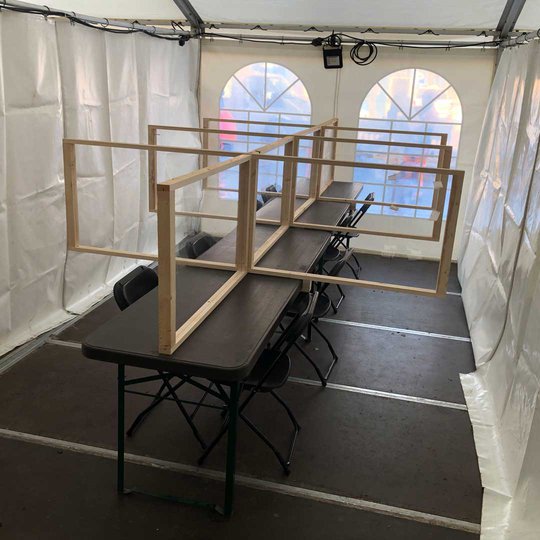
Production at the Tornio factories never stopped due to the coronavirus. Heidi Junno and Rami Salo believe that this has been significantly influenced by the many different precautions that Outokumpu has put in place during the pandemic.
“Even the high-paced outage was successful. The lines started running as they were supposed to, and planning for the next annual maintenance started right away,” says Rami Salo.
“In the bubble model, field canteens were seen as a good solution: takeaway has its friends, but many maintenance people like to eat at least one hot meal in canteen conditions during a long workday. Productivity and safety during the outage were also brought about by the fact that there was no need to set aside time to move between the workstation and canteen, in the large factory area with a lot of heavy traffic and other traffic, as well as the proprietary restrictions,” says Heidi Junno.
“We should continue this experiment
Additional information:
Anssi Kataja, Kataja Event, tel. +358 40 776 0868
Miika Luttinen, Telinekataja Oy, Tel. +358 40 777 7539
Safety and productivity for annual maintenance through temporary structures.
